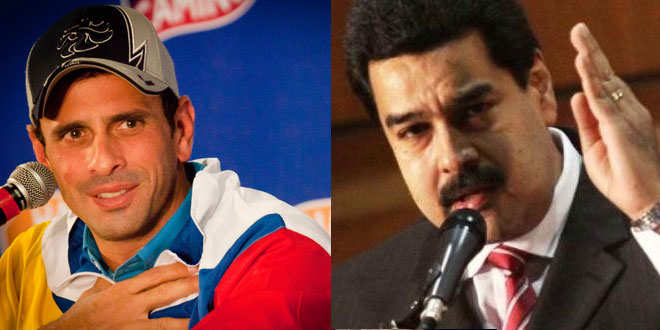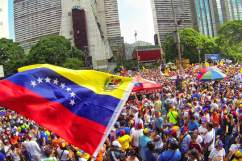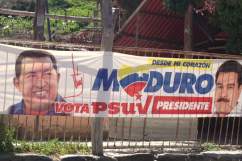
Opposition’s Capriles (left) and Nicolas Maduro (right).
CARACAS, Venezuela — The National Electoral Council announced that Hugo Chavez’s successor, Nicolas Maduro, won the presidential election by 1 percent — but the opposition and its leader Henrique Capriles Radonski have officially not accepted the results and is demanding a reccount.
On Twitter #FraudeEnVenezuela (Fraud in Venezuela) became a trending topic minutes after the results were given. And now Caracas, which has been a silent monster all day, is finally waking up. Chaos and confusion reign. Sounds of angry car horns, banging of pots and pans and idle pangs of fireworks are disrupting the quiet.
A divided Venezuela is literally heard. While Maduro has already accepted the victory, the opposition is calling foul play. Henrique Capriles Radonski, in a dramatic speech has officially refuted the Electoral Council’s results. Capriles stated in a televised address, “I will respect the voice of the people but these results do not reflect the reality of the country.” Opposition’s leader continued and mentioned the “thousands and thousands” of reported pro-Maduro government violations that took place throughout the election day.
The country’s palpable tenseness, which was expected to diffuse with the results, now continues to brew.
Close to midnight, Maduro — the man who promises to follow the footsteps of the highly controversial Hugo Chavez — was announced by the Electoral Council as winner. This after opposition candidate Henrique Capriles Radonski showed a lead in early polling. And unlike in other countries, this electoral authority is not considered particularly trustworthy — as four out of the five members of the National Electoral Council are militants of Chavez’s party.
Four out of the five members of the National Electoral Council are militants of Chavez’s party
Maduro has gone on a triumphant televised address during which Hugo Chavez was an obvious protagonist: “Chavez lives! Chavez lives!”
Cuban leader Raul Castro and Russian President Vladimir Putin and were among the first heads of state to congratulate Maduro.
Quick counts and stipulations had placed opposition candidate Henrique Capriles Radonski ahead of Maduro throughout the day. The quick counts took into account 1,500 voting centers out of 3,900, but the results were pretty much complete according to people who are adding up votes on the opposition side. It seemed to be well-known throughout Caracas that places that were previously pro-Chavez, such as the city of Coro, were pro-Capriles during this round of elections.
Numbers were giving Capriles 51.5 percent of the votes.
According to the CNE this was not the case. The Electoral Council announced the Maduro won by approximately 230,000 votes; this is does not count the approxiamate 100,000 votes from abroad that are expected to be heavily pro-Capriles.
With the opposition’s leader standing strong against the Electoral Council’s address and Nicolas Maduro’s assumed victory, the future of this country is unknown. The opposition has ordered a recount of “every single vote” and have yet to accept the results. It looks like this isn’t a closed chapter for Venezuela.
One thing is certain, it seems like the Chavez era seems to be in decline. In October, 2012 Hugo Chavez won the election by 10% if the votes – a landslide in comparison to Maduro’s extremely tight “victory”. On the other hand, Henrique Capriles Radonski has gained nearly a million votes since last elections.

